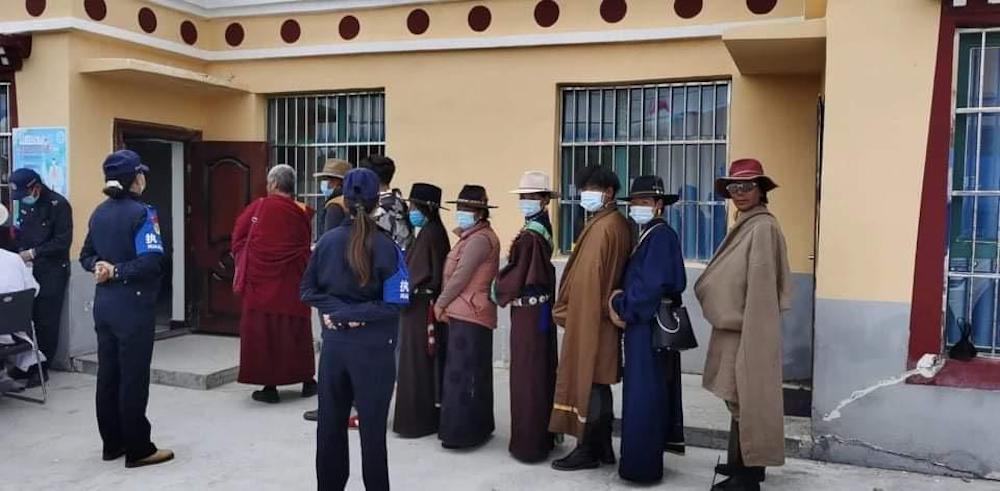
110 Tibetans, attended at horse racing festival, were detained in Janglam Village in Nyanrong County on August 9, 2021. (Nagchu Prefecture, Tibet Autonomous Region)
Tibetans in Nagchu (Ch: Naqu) are facing increased surveillance of their online activities as a new surveillance unit is established in the prefecture. The Nagchu Public Security Bureau has recently established a digital surveillance unit to primarily monitor closely the online activities of Tibetan residents of the Nagchu Prefecture in the “Tibet Autonomous Region” (TAR).
Since then, this unit has routinely monitored online activities of targeted Tibetans, specifically party cadres, literates, academics, and important persons, who are suspected of possible “illegal” online activities. They are scrutinised regularly as the unit checks their daily phone calls and other communication, including content shared on social network sites and chat groups.
The surveillance unit conveniently uses high-tech hardware to spy, track and monitor the online activities of Tibetans. “The authorities have started adding phone numbers of targeted Tibetans into the hardware device to enable the automatic tracking of their cell phones”, reported our source. It is plausible that this model of electronic police state implemented in Nagchu is expected to expand across the so-called Tibet Autonomous Prefecture soon.
“The Chinese officials believe that it is significant to ensure stability in Driru and Nagchu to ensure the stability of the TAR and that of Tibet overall,” the source noted further, referring to the extent of importance the authorities put in suppressing protests and dissents in the area. Driru and Nagchu Counties in Nagchu Prefecture have been a constant target of the Chinese government over the years as political protests and activities opposing the repressive laws and regulations have been frequent. Therefore, higher restrictions and tough policies are in place in the region.
Restrictions were further intensified following the official visit in recent years by Wu Yingjie, former Communist Party Secretary of TAR and with the current Communist Party Secretary of Tibet, Wang Junzheng, the crackdown in Driru and Nagchu continues.
-Filed by UN, EU and Human Rights Desk, Tibet Advocacy Section





